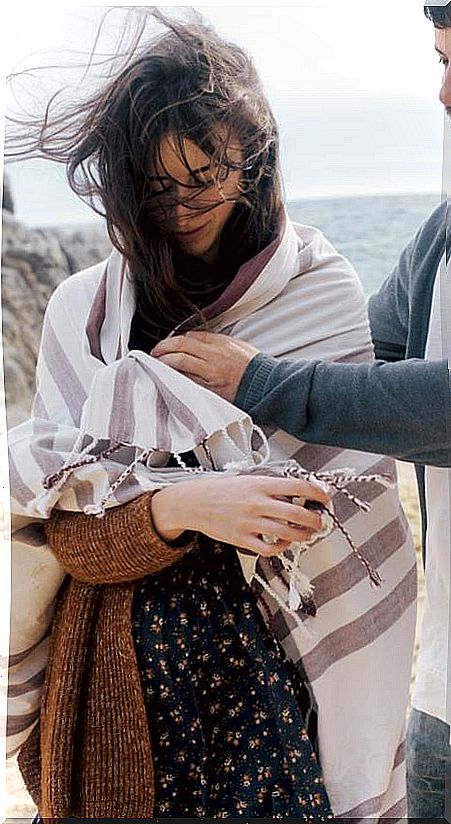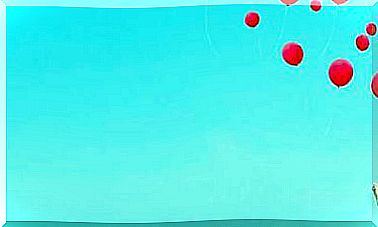Narrative Exposure Therapy To Heal Refugee Trauma
NET is a short and very effective therapy that can be applied even by people without a degree in psychology.

Before leaving their countries, they experienced extremely harsh situations: violence, war, death, extreme poverty … The journey was always difficult, long and dangerous.
Each one of the refugees who arrive in Europe carries a painful story, a sum of losses and traumas. Upon arrival, the difficult and invisible task of recovering psychologically begins.
Many of them, up to 40% according to some studies, will suffer a mental disorder as a result of everything they have experienced and witnessed. Post- traumatic stress , anxiety and depression, psychosis and somatizations. .. If they do not have the opportunity to heal these wounds of the soul, it is highly probable that the trauma will be transmitted to the next generations. Adolescents and children also suffer as a result of it all.
Treating that trauma is extremely important to alleviate your suffering and to prevent it from affecting future generations. However, it is also complex: there are cultural, social and economic barriers, added to stigma and ignorance. Some NGOs like Doctors Without Borders already offer a psychological first aid kit.
Narrative Exposure Therapy in the face of trauma
From Germany, the NGO VIVO International has specialized in offering psychological help and psychotherapy precisely to refugees in the Center for Psycho-trauma on Lake Constance that has been operating for the last 12 years, and in centers in different cities such as Berlin, Ulm, Munich and Bielefeld. To do this apply a therapy based on the narrative ( Exposure Therapy Narrative in English known as NET: Narrative Exposure Therapy), a proposal developed by psychologists Thomas Elbert, Maggie Schauer and Frank Neuner.
With the help of a therapist trained in this technique, each subject recounts their life story in detail with all significant events in chronological order. The therapist helps to organize the refugee’s memories from the temporal and spatial present, the “here and now”, in a continuous line of time that entails a reprocessing and resignification of traumatic events.
Structuring the narrative allows it to give it meaning, recognize resilience and strength, and above all alleviate suffering. Not only the individual, but also those who listen try to understand and embrace that pain to restore the dignity of the victims and empower them.
The best thing about NET is that with very few sessions a great impact and improvement is achieved. And it is based on something as ancient as our need to tell stories and share them with the community.
As Elie Wiesel, a Holocaust survivor and writer who won the Nobel Peace Prize for dedicating his entire life to preventing horror from recurring, said: “If I keep quiet I poison my soul, silence never helps the victim .” Building the story, turning it into history, makes it easier to close it, heal the emotional wound.
From VIVO now they are working to train people without a previous degree in psychology in this technique, but who, due to their life trajectory, can perfectly apply it. In some cases to refugees who live in camps in places like Lebanon and who are going to apply it later with people from their own community. Training is also being implemented for refugees who have arrived in Germany and need therapy at minimal cost.
The short and simple technique has already been successfully tested in more than fifteen countries, including Syria, Congo, Tanzania, Uganda, Rwanda, Sri Lanka, Somalia, Ivory Coast, Afghanistan, Kenya, Burundi, Iran, Sudan, Ethiopia , Colombia and Germany. NET has been used with both adults and children in different contexts and countries, and there are several scientific studies that demonstrate the effectiveness and efficacy of this therapy with children.
In the last two years, with financial support from the EU and UNHCR, they have trained more than 60 people in the NET. The psychologist Andria Spyridou who has participated directly in these trainings points out that the results are very positive, even for those affected by the conflict who still live in a highly stressful context.
Currently in VIVO they are supporting projects whose main objective is to train humanitarian actors from NGOs to use the NET in the conflicts in Syria and Kurdistan in Northern Iraq. The Bielefeld University psychotherapy clinic is applying the method in therapy studies not only with refugees but also with child abuse survivors, rape victims and former members of the German army.
In such difficult times, simple and healing interventions are essential, not only to heal those affected, but also to restore hope for a better world.









